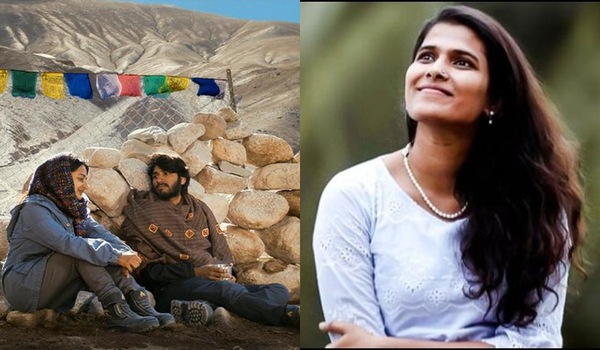Halitha Shameem Interview: Minmini is a story that I got in my dream and it surprised me
Halitha Shameem interview: The director discusses how survivor's guilt is a central theme of Minmini, as she shares that her choice of stories is driven by personal experiences and emotions

Last Updated: 02.05 PM, Aug 06, 2024
Artists, or in this case directors, often have a dream project that might take years, and even decades to fulfil it. It is no surprise how veteran filmmakers are yet to take off their dream projects that have been close to their hearts. But for filmmaker Halitha Shameem, her pet project Minmini, has been made right at the time when she completes 10 years since she made her debut with Poovarasam Peepee (2014). In fact, as they say life comes to a full circle, Minmini also stars child actors from the 2014 film Gaurav Kalai and Pradeep Kishore.
“I think more than the years of waiting I did; I feel happy that I have been finally able to complete by pet project. I have been travelling with this film for almost nine years and Minmini has been with me for so long,” says Halitha.
Also read: Minmini first look: The impressive poster of Halitha Shameem's next conveys a gamut of emotions
Halitha Shameem Interview
The filmmaker, who has dabbled with a dysfunctional father-son relationship in Aelay, and unconventional love stories in Sillu Karupati, and Loners, now talks about survivor’s guilt in Minmini. In fact, Halitha had shot with Pradeep, Gaurav and Esther Anil and had waited for seven years for the children to grow up in order to resume shooting with them.
“Only until we have a search, we can be a filmmaker. Our intent was never that survivor’s guilt is a new concept and we can do a film out of it. Instead, it was an organic story that evolved from a dream I had. Later, I found a name for the feeling this character has been experiencing which is called survivor’s guilt,” shares Halitha.
As Halitha recollects having her first theatrical experience by watching Anjali, a children’s film which also garnered much love from adults as well, the director says, “When Poovarasam Peepee, the film has such a reception and despite it did not get its fair share of theatrical due, the film gradually earned its recognition. But later, films like Goli Soda, Pasanga, and Kaaka Muttai eventually reached the audience.” She adds that at one point, Tamil cinema did begin to make films for children and with them, however, “Predominantly it is the age group between 25-35 years visit theatres. If family audiences continue to support such films, we may have gotten more such films. On the other hand, they are not the only ones to blame because makers too are responsible for giving more visibility to their films,” she says.
On choice of stories
Halitha says that she made Poovarasam Peepee with the intention of making a children’s film and adds, “At that time, as I was shooting with a camera in a village, I saw a bunch of school kids. Later I read the headlines that a gang-rape occurred at the same place where I saw these kids. What if they had seen? It was with this question I made Poovarasam Peepee. Minmini is a story that I got in my dream, and which surprised me. As I processed and developed it, the story kept affecting and triggering me. Aelay was a film for which I thought of the theatrical aesthetics, and Sillu Karupati was one offer which I got asked to make. With regards to Loners, I was undergoing a struggle of my own during the pandemic which made me to tell the story. So, there are various reasons to tell a story.”
The filmmaker says she never thinks of the audience, since cinema keeps changing and sometimes bizarrely someone’s thoughts would become a film already. “There have been a lot of films that I dropped after films with similar themes have come. Take the example of DeAr and Good Night. The makers would not have thought they would share the concept and comparisons, but bound to happen,” she adds.
Halitha concludes how the seven years of gap between shooting the film, has indeed changed the equation with the actors. “In fact while they were children, I used to casually call them but after a certain age, you cannot do that with them. Even if they are close, you should still respect the individual they are. The way they have evolved as adults is beautiful,” she concludes.
Subscribe to our newsletter for top content, delivered fast.

